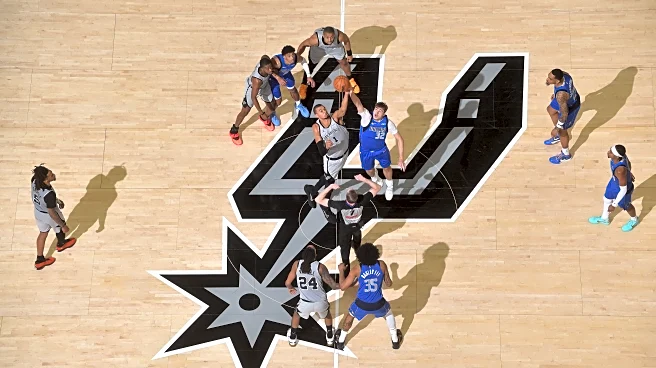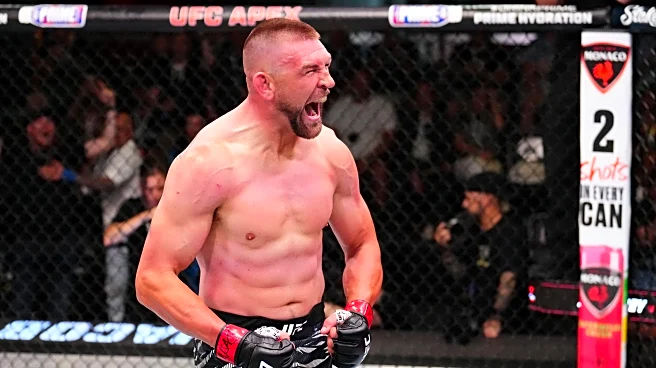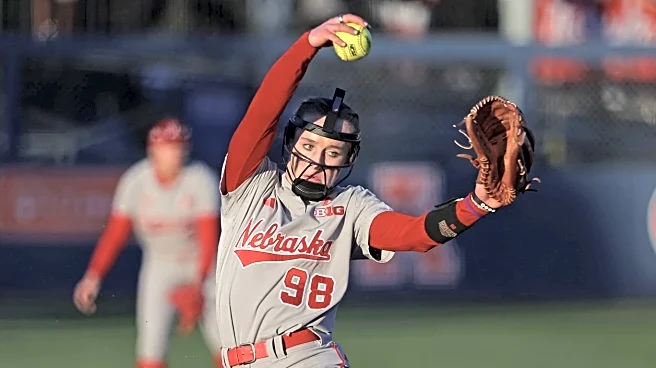What is the story about?
What's Happening?
Connor McDavid, the star player of the Edmonton Oilers, has signed a two-year contract extension worth $25 million. This extension adds to his existing contract, ensuring he remains with the Oilers until at least the summer of 2028. McDavid's decision to accept a deal below his market value is seen as a strategic move to aid the Oilers in their pursuit of the Stanley Cup. The Oilers have reached the finals in consecutive seasons but have been unable to overcome the Florida team. McDavid's extension is likened to a 'Tom Brady-like' moment, where a superstar takes less money to help their team succeed.
Why It's Important?
McDavid's decision to accept a lower salary than he could command on the open market is significant for the Oilers and the NHL. It sets a precedent for other players, highlighting the potential benefits of prioritizing team success over personal earnings. This move provides the Oilers with additional financial flexibility to strengthen their roster, increasing their chances of winning the Stanley Cup. The pressure is now on the Oilers' management to utilize the financial savings effectively to build a championship-winning team. McDavid's commitment to the Oilers reinforces his leadership role and dedication to the team's success.
What's Next?
With McDavid's contract extension secured, the focus shifts to the Oilers' management and their strategy to capitalize on the financial flexibility provided by McDavid's deal. The team is expected to make strategic acquisitions or investments to enhance their roster and improve their chances of winning the Stanley Cup. The Oilers' performance in the upcoming seasons will be closely watched, as the success of McDavid's decision will be measured by the team's ability to secure a championship. The NHL community will also observe how this move influences other players and teams in terms of contract negotiations and team-building strategies.
Beyond the Headlines
McDavid's decision to take a pay cut for the team's benefit raises questions about the balance between individual earnings and team success in professional sports. It highlights the potential for athletes to influence team dynamics and success through personal sacrifices. This development may inspire other players to consider similar approaches, potentially leading to a shift in how contracts are negotiated in the NHL. The ethical and cultural implications of such decisions could impact the league's competitive landscape and the expectations placed on star players.















